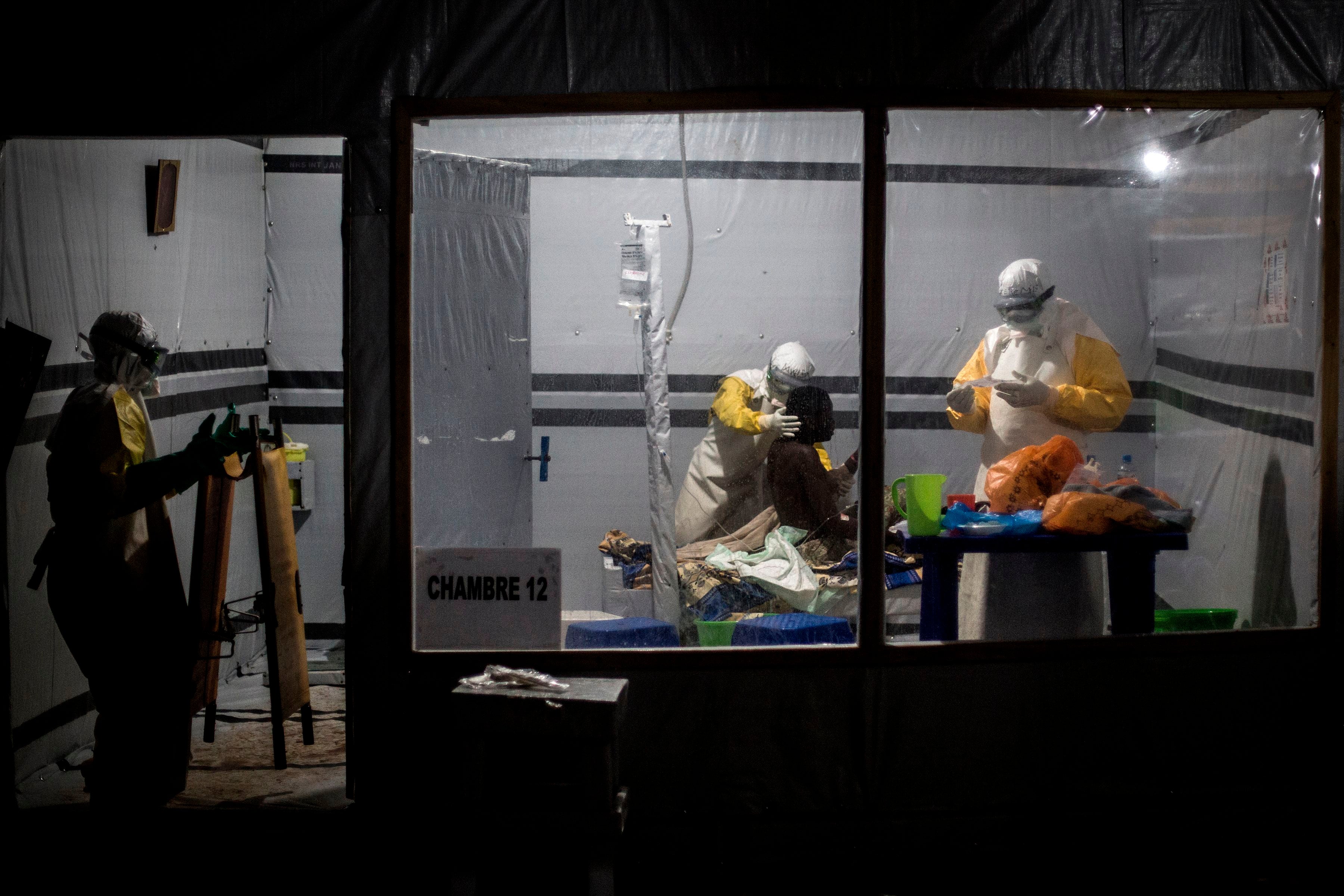Congo declares end of Ebola outbreak that killed 55
Outbreak emerged in June and infected 130 people

Your support helps us to tell the story
From reproductive rights to climate change to Big Tech, The Independent is on the ground when the story is developing. Whether it's investigating the financials of Elon Musk's pro-Trump PAC or producing our latest documentary, 'The A Word', which shines a light on the American women fighting for reproductive rights, we know how important it is to parse out the facts from the messaging.
At such a critical moment in US history, we need reporters on the ground. Your donation allows us to keep sending journalists to speak to both sides of the story.
The Independent is trusted by Americans across the entire political spectrum. And unlike many other quality news outlets, we choose not to lock Americans out of our reporting and analysis with paywalls. We believe quality journalism should be available to everyone, paid for by those who can afford it.
Your support makes all the difference.Democratic Republic of Congo's health minister on Wednesday announced the end of an Ebola outbreak in the west of the country that infected 130 people and killed 55.
The outbreak emerged in June, just before Congo declared the end of a separate Ebola epidemic in the east that was the second-deadliest on record, killing more than 2,200 people.
"A heartfelt thank you to everyone who tirelessly tracked down cases, provided treatment & vaccinated people in often remote communities tucked away in dense rain forests," the World Health Organization's Africa director, Matshidiso Moeti, said on Twitter after the minister's announcement.
Congo has suffered 11 Ebola outbreaks since the virus was discovered near the Ebola River in 1976, more than double any other country.
Its equatorial forests are a natural reservoir for the virus, which causes severe vomiting and diarrhoea and is spread through contact with body fluids.
Reuters
Join our commenting forum
Join thought-provoking conversations, follow other Independent readers and see their replies
Comments